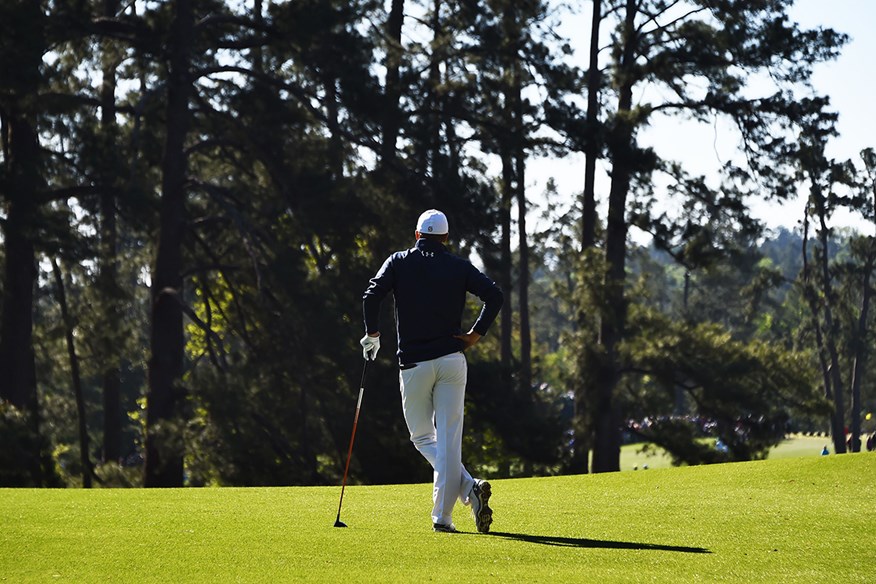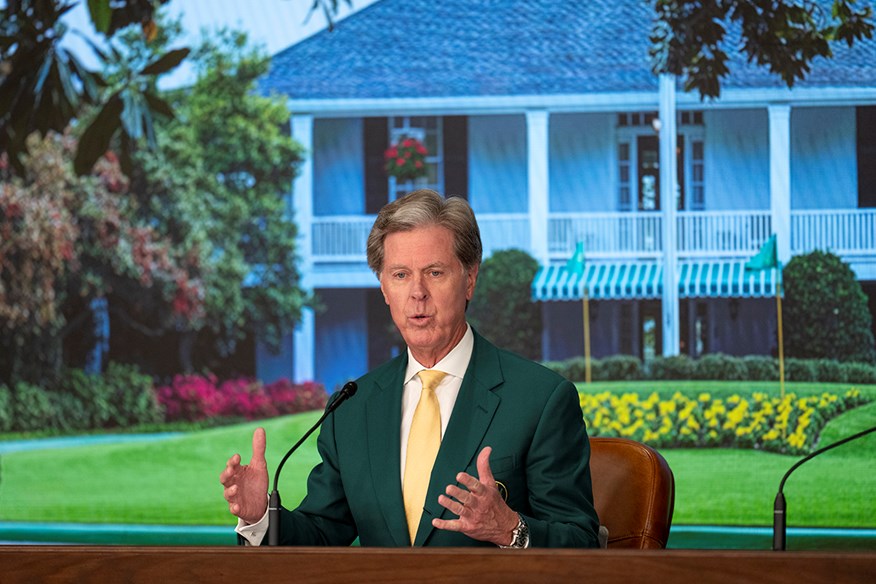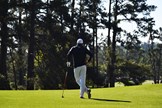Augusta chairman sends slow play warning ahead of 89th Masters
Published:

With a large field competing at Augusta in 2025, pace of play is at the front of Fred Ridley’s mind – and distance isn’t far behind.
Slow play is never far from the top of the agenda in the pro game with the distance modern players are hitting the ball following closely, and that’s no different at the Masters.
For chairman Fred Ridley, pace of play is at the front of his mind as we head into the first major of the year.
With 95 players teeing it up at Augusta on Thursday morning, Augusta’s head honcho is keen to ensure that one of the tournament’s larger fields does all it can to avoid unnecessary delays.
Tee times have been moved forward from the traditional start time to allow for the increased field with the honorary starters getting things underway at 7.25am, 35 minutes earlier than they traditionally would, before the first group heads out at 7.40am.
While 95 isn’t the largest field in Masters history – it’s gone past the 100 mark on three occasions with 110 in 1962, 103 in 1966, and 101 in 1957 – Ridley is aware that the slow and methodical nature of the modern game means any pace issues could cause problems with getting rounds finished.
Fortunately, unlike last year, it looks unlikely that the weather will cause any delays, so any issues with completing rounds will be firmly on the players.

“Playing without undue delay, as the rules and the game’s traditions dictate, is an essential skill of golf at all levels,” Ridley said in his traditional pre-Masters press conference. “Recognizing the challenges professionals face each week, I also believe pace of play is an important element of the examination of the world’s best players.
“Golf is a special game because it requires us to be considerate while also being competitive. Respecting other people’s time, including, importantly, the fans who support the game, is a fundamental courtesy.
“Therefore, I want to encourage continued dialogue on this topic, especially at the professional levels which serve as the most visible representation of our sport.”
Davis Riley and Patton Kizzire will be charged with setting the pace of play for the day, heading out first as a twosome due to the odd number of players in the field.
“[That] always kind of helps get things moving. And that’ll put a little more pressure, I think, on the groups that follow because as long as you keep up with the group ahead of you, then you’re going to be okay, and that group is obviously going to be playing quicker,” Ridley added.
Slow play has already reared its head at Augusta in recent days with competitors in the Drive, Chip & Putt event walking off yardages and using Aimpoint to check their lines. One player was called out for taking two minutes over a read.
Asked if he might “lead the way in trying to encourage these young players to get a bloody move on”, Ridley said it was an example that illustrates the problem.
“Unfortunately, these young people are looking to their heroes who play the game each week for a living as to how they’re going to approach competitively playing the game,” he replied.
“I think it’s been a good thing that knowledgeable people such as Dottie Pepper have commented on this recently. She made the point, which I alluded to in my comments, about respect for others, including most particularly the people who watch the game, the fans. So, I think maybe this might be a call to action that perhaps we haven’t seen in the past.”
Ridley also suggested we’d see tighter rules on slow play at Augusta in the future.
“Every phase of the [Drive, Chip & Putt] competition has the same length chip and the same length putt, so it’s really not necessary to pace that off. They know how many yards that is. But nevertheless, that’s what they were doing. I think it’s safe to assume that next year at the Drive, Chip & Putt you will see some sort of time limitations placed on the competition.”
Distance is also on the chairman’s mind. In his press conference in 2024 he voiced fears that Augusta could reach 8,000 yards if players continue to hit the ball further while backing the R&A and USGA’s planned rollback, a stance he reaffirmed today.
“Together, the R&A and the USGA have been deliberative and collaborative on their efforts on this topic to arrive at a decision which was, in fact, announced in 2023.
“Implementation is the next challenge, as we all knew it would be. It is critical for the good of the game that all stakeholders work together as this issue evolves. I’m encouraged by the constructive and positive discussions that are aimed at successfully implementing this important change.”
